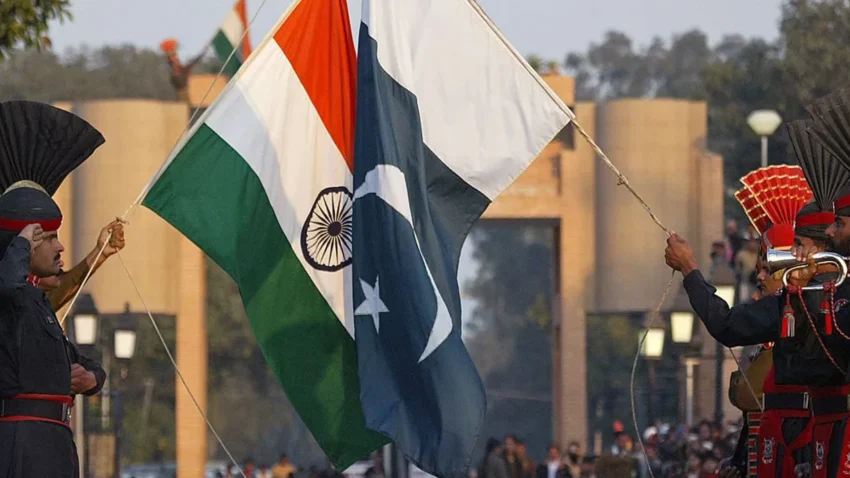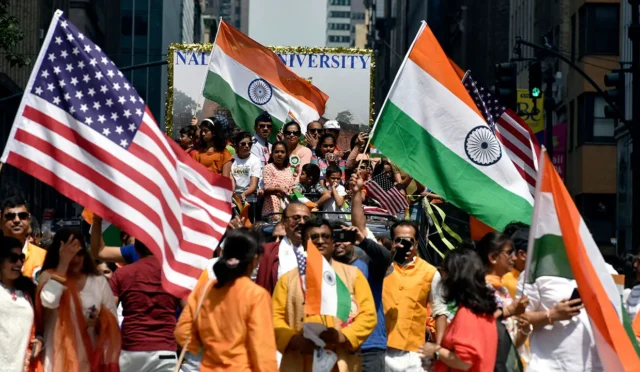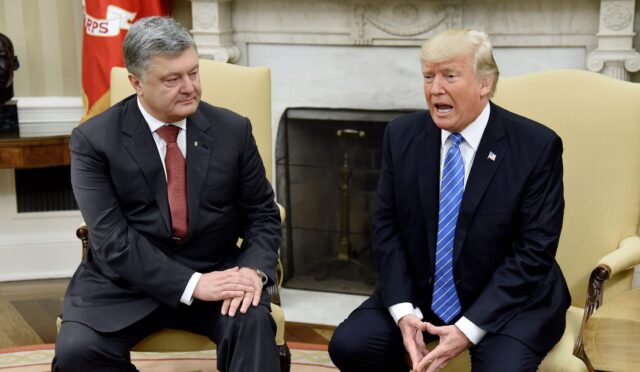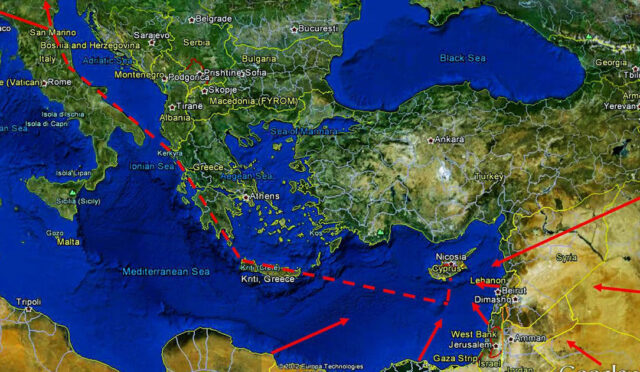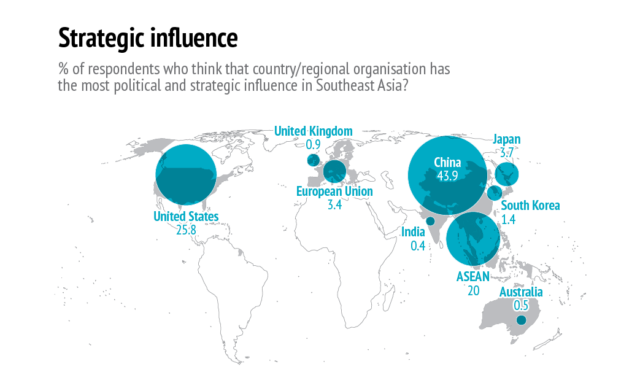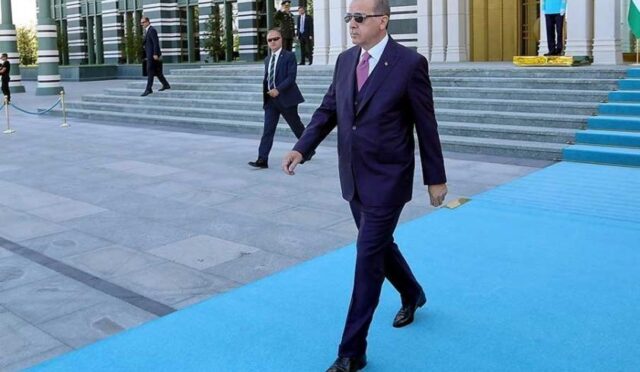The deepening strategic partnership between Turkey and Pakistan also earns Turkey a “norm-entrepreneur” role in increasing international awareness against India’s Kashmir policies and institutionalizing the defense of human rights in the Islamic world.
Open Cooperation vs. Covert Competition: India’s Anti-Islam Policies and Turkey’s South Asia Move
When considering the countries with which Turkey has historical, cultural, and religious interactions in the context of its international relations, its immediate vicinity, namely the Middle East, the Balkans, and the Caucasus, generally comes to the forefront. However, with the impact of globalization and the global distribution of the Muslim population, countries geographically distant from Turkey but with which close historical and religious ties can be established, such as Indonesia, Malaysia, and Pakistan, are also gaining importance.
On the other hand, India, which surpassed China in 2023 to become the world’s most populous country, and its recently hardened rhetoric against Pakistan, as well as de facto actions such as the unilateral suspension of the Indus Waters Treaty, are rapidly escalating regional tensions, threatening not only political stability in South Asia but also international peace and security. This development once again brings to the agenda the strategic importance of the multi-layered cooperation that Turkey will establish with the aforementioned three countries.
Firstly, Southeast Asian countries such as Indonesia and Malaysia, along with Pakistan, have had varying degrees of interaction with the Turkish world since the Ottoman era. For example, in the 16th century, the Aceh Sultanate (the region in today’s Sumatra Island of Indonesia) requested military and technical support from the Ottomans against Portuguese attacks. Similarly, the cultural and political influence of the Ottomans was felt to some extent in the Bengal and Sindh regions of South Asia. Through continuous pilgrimage journeys, maritime trade, and religious ties over different centuries, cultural exchange continued with the local sultanates of Malaysia and Indonesia.
Looking at the Pakistan front, historically, the interest of the “Muslims of the Indian Subcontinent” in the Ottomans and the Khilafat Movement that emerged in the 19th century laid the foundations of Turkish-Pakistani friendship. After Pakistan gained its independence in 1947, this friendship continued, especially in the form of political support and solidarity in international platforms. It should also be remembered that Turkey made positive contributions to Pakistan’s diplomatic recognition processes after its independence. In contrast, India’s harsh security policies pursued over the Kashmir issue since its independence, and especially the recent systematic discriminatory practices against the Muslim minority, such as the amendments to the citizenship law by the Bharatiya Janata Party (BJP) government, “bulldozer justice,” and the institutionalization of hate speech, have provoked reactions in the Islamic world, including Turkey, and have once again demonstrated the necessity of strengthening the strategic solidarity on the Pakistan-Turkey axis.
However, these countries are not located in Turkey’s immediate vicinity. Turkey, in accordance with the requirements of being a regional power, primarily maintains its presence and effectiveness in neighboring or close regions such as the Middle East, Eastern Mediterranean, the Balkans, and the Caucasus. Therefore, it is not always easy to act together with these countries at a practical level in regional crises or geopolitical developments.
Although Pakistan is relatively closer to Turkey than the Middle East, its geopolitical dynamics differ due to geographical conditions and regional factors such as India, Afghanistan, and Iran in its vicinity. For example, Turkey’s energy policy in the Eastern Mediterranean or its effectiveness in Syria has almost no relevance to Pakistan’s regional dynamics. Similarly, Pakistan’s priorities such as the Kashmir issue, its relations with India, and security problems originating from Afghanistan remain distant from Turkey’s agenda.
Nevertheless, India’s recent operations targeting civilians in Kashmir and its turning water sharing into a tool of pressure against Pakistan have shown us that crises in South Asia, which seem “distant,” can indirectly affect the stability of the Middle East-Eastern Mediterranean. Therefore, the Turkey-Pakistan security dialogue has gained a critical dimension not only in a bilateral context but also in terms of managing India-originated risks.
At the current stage of globalization, it is clear that there are numerous global issues that transcend national and regional borders. Issues such as economic development, climate change, migration movements, energy security, epidemics, and representation in international organizations are leading states to increasingly seek collective action. Countries such as Turkey, Indonesia, Malaysia, and Pakistan, which have a majority Muslim population and are regionally influential, can act jointly on these issues in line with the interests of both their own societies and the international community, and are seeking to strengthen this cooperation.
In this context, the discussion of anti-Muslim violence in India during the “International Day to Combat Islamophobia” sessions celebrated at the United Nations in March 2025 exemplifies the new cooperation ground formed in the multilateral arena. Furthermore, the “Joint Strategy Against Islamophobia” decision recently brought to the agenda within the D-8 framework aims to establish an international pressure by creating a mechanism to monitor and report human rights violations directly targeting Muslims in India.
On the other hand, Turkey’s MİLGEM corvette project with Pakistan, unmanned aerial vehicle sales, and joint exercises are developments that could greatly disturb India. While India is trying to expand its influence in the Indian Ocean-Pacific axis with its Act East and Neighbourhood First policies, Ankara, as part of its Asia Anew Initiative, is establishing defense-technology lines with Indonesia, Malaysia, and Pakistan, creating an alternative focus that affects the regional balance. This situation points to a covert competition between Turkey and India in the international arena, not directly expressed but felt under the headings of Islamophobia, Muslim minority issues, and strategic defense industry exports. Therefore, India’s anti-Muslim domestic policies strengthen Turkey’s soft power discourse in the region while also creating diplomatic maneuvering space.
Indeed, Turkey has been taking steps in recent years to move beyond the perception of a “regional power” in its foreign policy and become an effective actor on a global scale. In line with this goal, increasing cooperation with Muslim countries in various regions, regardless of geographical proximity, carries strategic significance. Countries such as Indonesia, Malaysia, and Pakistan, where a significant portion of the Muslim population resides, also have considerable influence and economic power in the international arena. Indonesia has the largest Muslim population in the world. Its population of approximately 280 million and being one of the largest economies in Southeast Asia make it influential in the global market and international organizations. Malaysia holds an important position in Southeast Asia in terms of per capita national income and export performance and has a highly developed economic profile within the Islamic world. Pakistan, in addition to being a nuclear power, is a noteworthy actor in the international arena with its population of approximately 250 million. In this context, the deepening of the Turkey-Pakistan strategic partnership also earns Turkey a “norm-entrepreneur” role in increasing international awareness against India’s Kashmir policies and institutionalizing the defense of human rights in the Islamic world.
Conclusion: Strengthening Bilateral Relations, Acting Together on Global Issues
Geographical distance certainly limits the establishment of a strong military or political alliance with Pakistan and other Muslim regional countries in the regional conjuncture. However, at a global level, Turkey, Indonesia, Malaysia, and Pakistan, which are among the most populous countries in the Islamic geography, carry great potential in terms of religion, culture, and approach to common problems. Different regional geopolitical priorities will naturally make it difficult for these countries to be on the same page on all issues. Nevertheless, it is possible to act jointly in many areas such as global trade, the defense industry, energy supply security, international migration policies, development projects, and climate change in the context of the common interests of the Muslim world. Moreover, India’s discriminatory policies towards the Muslim minority and its rising aggressive stance against Pakistan necessitate the development of a common legal and human rights discourse in the international arena by these four countries (including Turkey). Thus, the alliance that Ankara will establish with the Indonesia-Malaysia-Pakistan triangle is gaining not only an economic and defense-oriented but also a normative framework.
If Turkey wants to maintain its regional power identity while also becoming a global actor, it must redefine its existing ties with these countries within the framework of current requirements. At this point, today’s multi-dimensional foreign policy approach is the main guiding principle. Focusing on problems in the immediate vicinity while expanding areas of cooperation with friendly countries located in more distant geographies but with which political, economic, and cultural ties exist will strengthen Turkey’s hand in the international arena.
In conclusion, the unity between Turkey and Indonesia, Malaysia, and Pakistan is much more meaningful on global issues than on regional matters. This coalition will support Turkey’s expansion of its sphere of influence in global issues and its attainment of a stronger position in international decision-making mechanisms. It has the potential to shape long-term strategic collaborations at the global level and Turkey’s role in the international arena. As Turkey consolidates its goal of being a regional power, it will focus more closely on global issues, and in this process, the covert competition with India will continue to be a balancing element through the alliances it will develop on the Indonesia-Malaysia-Pakistan axis.
Dr. Ensar Kivrak
